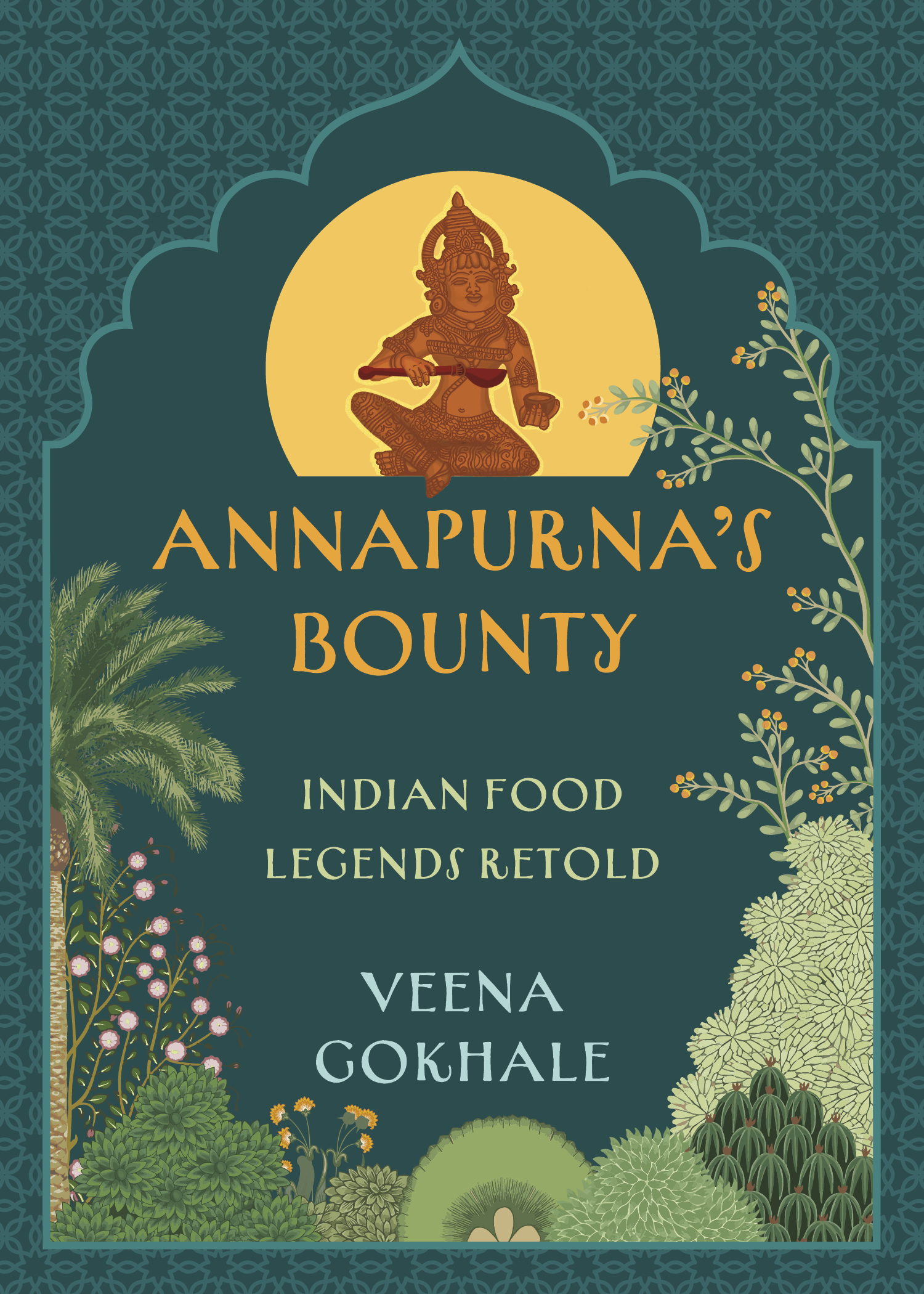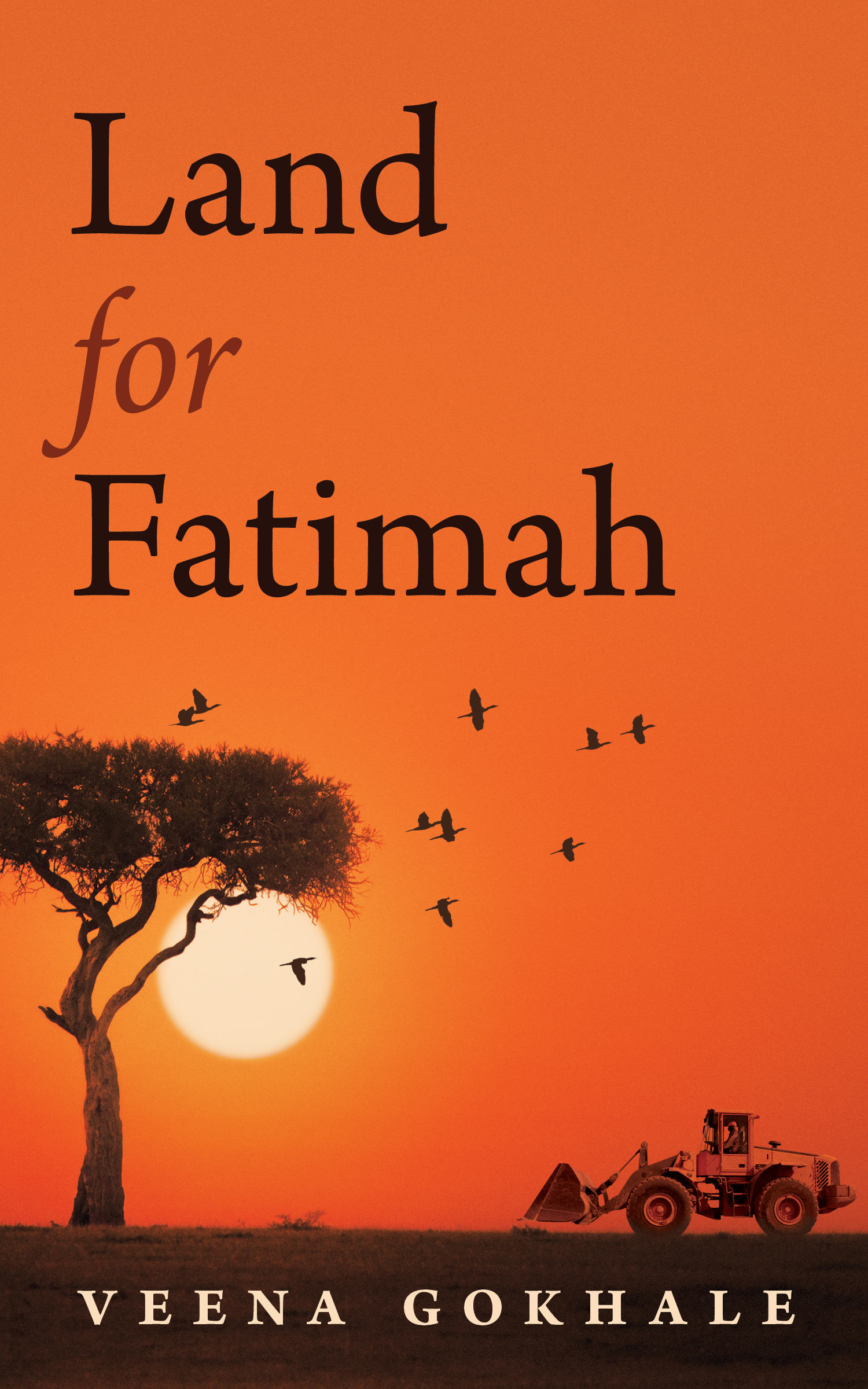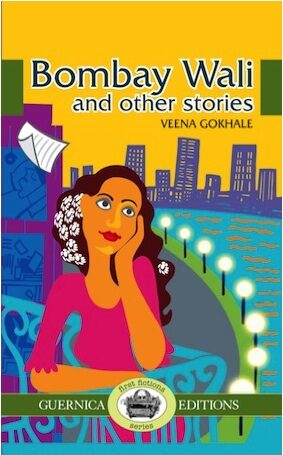Annapurna’s Bounty, Indian Food Legends Retold

Amazon Canada, U.S., U.K., India
Indigo, Kobo, Indie Bookstores,
Barnes & Noble, 49th Shelf,
Atlantic Books India
Dundurn Press, June 2025.
Order now! Released: June 3, 2025
Annapurna, the Indian Goddess of Nourishment, presides over a rich harvest of stories reimagined for the twenty-first-century palate. Here, food manifests as ploy, bargain, symbolic communication, a bone of contention, a lesson, as it weaves through the lives of a cast of characters — kings and commoners, witches and goddesses, gurus and bandits, refugees and travellers.
Each story is followed by a vegetarian recipe offered up by a character. Gathered from the four corners of India, there are well-known dishes like nourishing dal and irresistible mango lassi, novelties like Avial and Bengali khichari, as well as a new twist on beloved foods, such as samosas with a peas and coconut filling.
Infused with humane values, expertly blending the timeless and the contemporary, the magical and the everyday, encompassing East, West, and the in-between, this fusion of fiction and food will delight and inspire.
See Media Coverage
Land for Fatimah, a novel

Guernica Editions, 2018.
Amazon Canada, U.S., U.K., India
Indigo,
Kobo, Indie bookstores,
Barnes & Noble, 49th shelf
Four strong women: Anjali, an Indo-Canadian single mother who eagerly accepts an African posting with her non-profit organization; Grace, her dedicated but dominating colleague, who opposes her; Fatimah, a farmer ousted from her home and fertile farmland, whom Anjali befriends; and Mary, Anjali’s kindly maid, who must secure the future of her son, Gabriel.
Anjali involves herself in Fatimah’s quest to find new land for her scattered community, and is thrown into a web of intrigue that upturns her safe, orderly world.
Capturing the warmth and vitality of Africa, illuminating everyday heroism, the novel explores expatriate life, the forced displacement of the poor and the complexities of development.
Back of the book
Erudite and engaging. The characters are drawn with empathy and compassion. The tension between the exigencies of justice and the demands of bureaucracy is aptly depicted. The protagonist, Anjali, is a complex, multidimensional character, admirable for her attempts to put principle ahead of pragmatism.
– H. Nigel Thomas, author, shortlisted for the Hugh MacLennan Prize for Fiction, 2013 & 2015
The story hit many of those bitter sweet moments you have when trying to make a difference against all odds. I know anybody who has worked in a developing country or with an NGO will love the book.
– Andra Tamburro, Former Director at Water Advocates
See Media Coverage
Reviews
… a powerful tale about land ownership, dispossession, power, and poverty told through the eyes of four women…”
“Masterfully weaving an important global narrative about the consequences of colonial, corporate, and governmental greed with a more personal story of working in an NGO in a foreign land, Land for Fatimah is a must-read.
– Cecilia Keating, Hunger for Land, Montreal Review of Books
… a story that is exposing issues that many don’t consider in the name of progress: the people that are most directly affected by changes that take their traditions, homes, livelihoods and futures…
All four of the voices here have a different view and priority, and these will clash often… An interesting and thoughtful story that should be on your shelf, for these issues will become more prevalent world-wide as progress in the name of profits continue to rule – and seeing the impact, small and large, is important in informing your stance.
– Gaele at I am, indeed
Veena Gokhale’s […] novel is a bridge spanning cultures and languages across South Asia, Africa and Canada…
Whereas on the one hand, Land for Fatimah is about the poor and the dispossessed, it is also about the plight of foreign or local NGOs…
Land of Fatimah provides a rare insight into the day-to-day challenges faced by these organizations. Set against the backdrop of busy city streets with swarming Matatas (privately-owned mini-vans) and the all-consuming dust of African countryside, this novel makes a great read.
– Nilambri Ghai at Montreal Serai
Foreign aid is very much in the news. Questions about its effectiveness abound… The news we hear is usually from the outside… Land for Fatimah tells a story from the inside and is therefore truly welcome… we are left with an empathetic picture of how it must be for the poor in Africa who have been displaced, and who look for assistance wherever they can get it.
– Barbara Lingens at Bookloons
Bombay Wali and other stories

Guernica Editions, 2013.
Amazon Canada, U.S., U.K., India
Indigo, Kobo, Indie bookstores,
Barnes & Noble, 49th shelf
Bombay Wali and other stories, my lively fiction collection, was published by Guernica Editions in 2013. Bombay Wali means a woman from Bombay.
These are twelve tales that provide startling glimpses of contemporary life in Bombay and elsewhere. Stories about friendship and resentment, family ties and freedom, violence, public and private; despair and acceptance, ambition and uncertainty, growing up and growing old.
These are stories that provide the genuine flavour and taste of India, and other exotic locales. Whether we are privy to the private conversations of three young women plotting a desperate act in Bombay, imagining the details and scents of a British/tropical teahouse, or feeling a young wife’s longing for the excitement of rioters in the streets, we meet true-to-life characters imbued with interest and complexity. These are rich stories, well-imagined, deeply felt.
Mark Frutkin, author, Fabrizio’s Return, winner of the 2006 Trillium Book Award.
See Media Coverage
Read samples at Montreal Serai.
Reviews
- Review by Amrita Ghosh in the South Asian Review, the refereed journal of the South Asian Literary Association, Volume 34, Issue 3, 2013. Pages 201-202. (download pdf)
- Passage to Bombay,Heather Leighton, The Rover.
- Review by Candace Fertile in the Maple Tree Literary Supplement.
- Bombay Wali Review, Mayank Bhatt, Generally About Books.
- Arrivals: South Asian novelists in spotlight, Sarah Murdoch, The Toronto Star.
- Review on literary blog Words of Mystery
“These are stories that provide the genuine flavour and taste of India, and other exotic locales. Whether we are privy to the private conversations of three young women plotting a desperate act in Bombay, imagining the details and scents of a British/tropical teahouse, or feeling a young wife’s longing for the excitement of rioters in the streets, we meet true-to-life characters imbued with interest and complexity. These are rich stories, well-imagined, deeply felt.”
Back cover endorsement by Mark Frutkin, author, Fabrizio’s Return, winner of the 2006 Trillium Book Award.
Story descriptions
Bombay Wali: Renuka, a young journalist eking out a meagre but interesting living in Bombay, finds herself embroiled in a desperate scheme hatched by her best friend.
Bombay Wali means a woman from Bombay.
Middle Age Jazz and Blues: At an innocuous jazz concert, Feroza, a professor and caregiver, comes face to face with a painful aspect of her past.
Zindagi Itefaq Hai (Life is Chance): A page containing important information falls out of a journalist’s office window and disappears. Will he or won’t he make the deadline for his story?
Freire Stopped in Bombay: Dilip, a young, Dalit student on a Government Scholarship, faces big challenges in Bombay. Can Paulo Freire be of some help?
Dalits, formerly known as untouchables, occupy the lowest rung on the Hindu caste system. The Constitution of India prohibits discrimination based on caste and has abolished untouchability. India also has an affirmative action policy.
This story is inspired by true events.
Reveries of a Riot: Mira is shell-shocked by the riot raging outside her apartment. A reflection on violence, public and private.
The Room: College girl Sujata feels compromised by an unsavoury alliance that she must tolerate in order to enjoy herself.
Absolution: Ashok, a no nonsense businessman who prides himself on being modern, is forced to contend with tradition and heritage.
Smoke and Mirrors: Kavita, a wealthy businesswoman, feels compelled to hurt her loyal friend, Shanti. Could this be the end of a friendship that spans two decades?
Munni: A little servant girl, Munni, leaves an indelible impression on a child whose family she works for. A true story.
Snapshot: In a suburban Tokyo apartment, Sukiyo, an old, Japanese woman takes an unexpected step to redress her loneliness.
This story is inspired by a news article.
The Tea Drinker: Martin, a sensitive, atypical boy is marked by his childhood encounter with Maliha, a reclusive heiress.
Kathmandu: Stranded in Kathmandu, April, a young Canadian student, finds help from unexpected quarters.
Header image: Vidyasagar Setu, River Hooghly, Kolkata, India © 2014 Ganguly Biswarup – Wikimedia Commons – CC-By 3.0,
Image sources
- Land for Fatimah: Guernica Editions | All Rights Reserved
